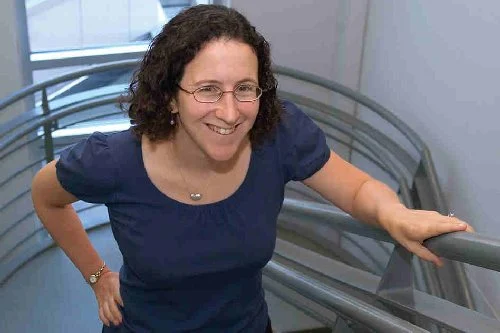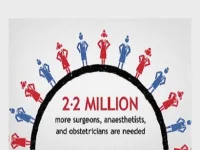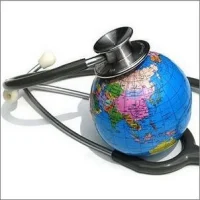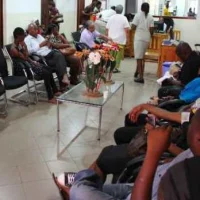Economists and other academic researchers have increasingly been using randomised controlled trials (RCTs) to study all sorts of things, including how to best fight poverty. In the area of healthcare delivery, however, the use of RCTs is still not common — which is surprising given that the link between healthcare and poverty is strong, according to MIT economist Amy Finkelstein, who is feature in a Freakonomics podcast "How do we know what really works in healthcare?"
Finkelstein and her colleagues have found that randomised trials are very much the norm in medicine – in drug studies, medical treatment, and so on. However, in healthcare delivery (ie, how those drugs and treatments are actually consumed by patients), RCTs are quite rare.
"That was a striking disparity," says Finkelstein. "And while we don’t think everything can or should be randomised, we would like randomised evaluations to be closer to the norm rather than the exception in healthcare delivery the way they are in medical research."
In a randomised trial, the subjects or participants (population) are randomly divided into groups, and some groups receive a treatment that the others do not get. Those who conduct the RCT then measure whether the treatment group came out any differently than the control group.
J-PAL's Advocacy: RCTs for Informed Decision Making
Aside from being a professor of economics at MIT, Finkelstein also serves as a scientific director of J-PAL North America. Founded in 2003, the Abdul Latif Jameel Poverty Action Lab (J-PAL) is a centre at MIT that is a network of high-quality academics around the world. It aims to promote and encourage randomised evaluations on important public policy issues and then to disseminate the results of those randomised evaluations to stakeholders and decision makers.
J-PAL is composed of regional offices, and Finkelstein supervises J-PAL North America. For years, its primary focus was overseas. J-PAL has helped run many RCTs in Kenya, India and elsewhere, trying to learn how best to prevent teen pregnancy and drunk driving; and how to better incentivise nurses and small-business growth and modern farming techniques. In the US, Prof. Finkelstein and her J-PAL colleagues were interested in healthcare delivery.
"We take a rather broad view of poverty alleviation. And so anything that improves the efficiency of healthcare delivery, I think is important for the public for two reasons. First, you know, the poor are disproportionately unhealthy and therefore have the burden of healthcare relative to less poor people. Also, given that healthcare spending is currently about a fifth of public-sector budgets at the state and federal level, anything one can do to improve the efficiency of healthcare delivery frees up more money to spend on other programmes as well," according to Finkelstein.
Interesting Findings from Oregon Medicaid Research
She and her colleagues conducted research on a Medicaid expansion plan in Oregon. In 2008, Oregon initiated a limited expansion of a Medicaid programme for uninsured, low-income adults, drawing names from a waiting list by lottery. This lottery created a rare opportunity to study the effects of Medicaid coverage using a randomised controlled design.
Using the randomisation provided by the lottery and emergency department records from Portland-area hospitals, Finkelstein et al. studied the emergency department use of about 25,000 lottery participants over approximately 18 months after the lottery. Results showed that Medicaid coverage significantly increased overall emergency use by 0.41 visits per person, or 40 percent relative to an average of 1.02 visits per person in the control group.
"Everyone assumed emergency room use would go down. In fact, one of the arguments people make for covering the uninsured is to get them out of the expensive emergency room and into primary care clinics and other services. And we found that covering the uninsured increased emergency room use by 40 percent," Prof. Finkelstein notes.
Another set of results from this randomised evaluation showed that covering low-income people with Medicaid reduces depression.
"We got about a 30 percent reduction in depression," says Finkelstein. "And also, and perhaps most interesting to me as an economist, covering the uninsured with Medicaid improves their financial stability. It reduces the risk of catastrophic, out-of-pocket expenditures to virtually zero. So it’s providing important financial security, as well."
The full podcast is available to listen to on the Freakonomics website.
Source: Freakonomics
Image Credit: MIT News Office
Finkelstein and her colleagues have found that randomised trials are very much the norm in medicine – in drug studies, medical treatment, and so on. However, in healthcare delivery (ie, how those drugs and treatments are actually consumed by patients), RCTs are quite rare.
"That was a striking disparity," says Finkelstein. "And while we don’t think everything can or should be randomised, we would like randomised evaluations to be closer to the norm rather than the exception in healthcare delivery the way they are in medical research."
In a randomised trial, the subjects or participants (population) are randomly divided into groups, and some groups receive a treatment that the others do not get. Those who conduct the RCT then measure whether the treatment group came out any differently than the control group.
J-PAL's Advocacy: RCTs for Informed Decision Making
Aside from being a professor of economics at MIT, Finkelstein also serves as a scientific director of J-PAL North America. Founded in 2003, the Abdul Latif Jameel Poverty Action Lab (J-PAL) is a centre at MIT that is a network of high-quality academics around the world. It aims to promote and encourage randomised evaluations on important public policy issues and then to disseminate the results of those randomised evaluations to stakeholders and decision makers.
J-PAL is composed of regional offices, and Finkelstein supervises J-PAL North America. For years, its primary focus was overseas. J-PAL has helped run many RCTs in Kenya, India and elsewhere, trying to learn how best to prevent teen pregnancy and drunk driving; and how to better incentivise nurses and small-business growth and modern farming techniques. In the US, Prof. Finkelstein and her J-PAL colleagues were interested in healthcare delivery.
"We take a rather broad view of poverty alleviation. And so anything that improves the efficiency of healthcare delivery, I think is important for the public for two reasons. First, you know, the poor are disproportionately unhealthy and therefore have the burden of healthcare relative to less poor people. Also, given that healthcare spending is currently about a fifth of public-sector budgets at the state and federal level, anything one can do to improve the efficiency of healthcare delivery frees up more money to spend on other programmes as well," according to Finkelstein.
Interesting Findings from Oregon Medicaid Research
She and her colleagues conducted research on a Medicaid expansion plan in Oregon. In 2008, Oregon initiated a limited expansion of a Medicaid programme for uninsured, low-income adults, drawing names from a waiting list by lottery. This lottery created a rare opportunity to study the effects of Medicaid coverage using a randomised controlled design.
Using the randomisation provided by the lottery and emergency department records from Portland-area hospitals, Finkelstein et al. studied the emergency department use of about 25,000 lottery participants over approximately 18 months after the lottery. Results showed that Medicaid coverage significantly increased overall emergency use by 0.41 visits per person, or 40 percent relative to an average of 1.02 visits per person in the control group.
"Everyone assumed emergency room use would go down. In fact, one of the arguments people make for covering the uninsured is to get them out of the expensive emergency room and into primary care clinics and other services. And we found that covering the uninsured increased emergency room use by 40 percent," Prof. Finkelstein notes.
Another set of results from this randomised evaluation showed that covering low-income people with Medicaid reduces depression.
"We got about a 30 percent reduction in depression," says Finkelstein. "And also, and perhaps most interesting to me as an economist, covering the uninsured with Medicaid improves their financial stability. It reduces the risk of catastrophic, out-of-pocket expenditures to virtually zero. So it’s providing important financial security, as well."
The full podcast is available to listen to on the Freakonomics website.
Source: Freakonomics
Image Credit: MIT News Office
Latest Articles
emergency department, healthcare delivery, randomised controlled trial, Medicaid, poverty
Economists and other academic researchers have increasingly been using randomised controlled trials (RCTs) to study all sorts of things, including how to b...


![Tuberculosis Diagnostics: The Promise of [18F]FDT PET Imaging Tuberculosis Diagnostics: The Promise of [18F]FDT PET Imaging](https://res.cloudinary.com/healthmanagement-org/image/upload/c_thumb,f_auto,fl_lossy,h_184,q_90,w_500/v1721132076/cw/00127782_cw_image_wi_88cc5f34b1423cec414436d2748b40ce.webp)







